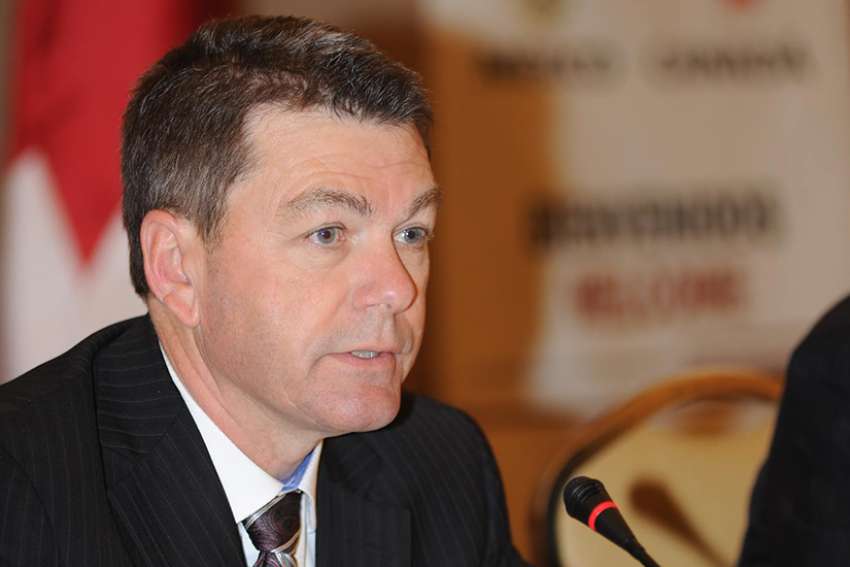Yet Conservative MP David Anderson expects standing-room-only for the seventh annual Parliamentary Forum on Religious Freedom on Oct. 1. His expectation is partly based on evidence of the previous six forums.
“Basically as soon as we send the e-mail notice out inviting people to the Forum, we have a full room. Many people have come back time and again, and we always welcome new people of course,” Anderson says.
He acknowledges anticipation of a packed room also arises from the way faith and freedom in Canada seemed to have been torn apart by two major developments. Last January, the federal government announced that personal beliefs about abortion and sexual identity would form part of the eligibility test to receive funds under the Canada Summer Jobs program. In June, the Supreme Court of Canada reversed its own 2001 decision and ruled against Trinity Western University’s covenant requiring staff and students to abide by biblical sexual teachings.
“We find ourselves with a court case that surprised many people,” Anderson says. “We find ourselves with a government program that required an attestation of belief. When the government gets involved in using taxpayers’ money to direct their beliefs, people get very concerned. I don’t think people are tying the (Trinity Western) decision and the government activity together directly. But they question how much influence or control is being (exerted) over private institutions and private belief. The nature of anti-democratic governments around the world is the limitation of people’s freedom to believe.”
Anderson began the Forum primarily to focus on the state of faith freedom internationally rather than domestically. In recent years, Canadian developments have turned the Forum somewhat away from a purely global faith perspective and more toward comparisons — increasingly less positive — with Canada’s standing in the world on the issue.
“A number of things over the years have brought attention (to religious freedom) back to Canada and made some of the issues much more important. I think the real pivot point in terms of religious freedom is whether there’s coercion, or whether people have the voluntary choice of what they believe or don’t believe.”
Certainly, he says, the infamous Summer Jobs attestation set off a lot of alarm bells about whether that line was not only being crossed but actively erased. Yet concerns began even earlier with the non-binding Commons motion known as M-103 that, under the rubric of promoting religious tolerance, caused serious public discussion about state-compelled belief.
“In the discussion around M-103, which is almost forgotten now, the government talked about what it called a ‘whole government approach’ to these issues. I didn’t know what that actually meant, but if it means what’s being applied right now (e.g., with the Summer Jobs attestation), it does not look like it’s creating freedom, it looks like its restricting freedom.”
That doesn’t bode well for Charter-protected rights. Neither does it create optimism for future social cohesion in a country where, as new data from a Cardus-Angus Reid Institute survey showed this month, first-generation immigrants are warier than are longer established Canadians about how well their religious freedoms will be respected in their new home.
In the words of Cardus Executive Vice-President Ray Pennings, who will speak at the Religious Freedom Forum: “That’s significant about new immigrants, but it’s also significant for all Canadians, however long they’ve been here, to understand the place of religious faith in public life.”
Pennings believes strongly that Canadians in faith communities must get to work creating opportunities for new arrivals to feel they are not merely welcome but active in fostering the common good of faith in public life.
Perhaps events like the Parliamentary Forum on Religious Freedom could be just the ticket.
(Stockland is publisher of Convivium.ca and senior fellow with Cardus.)


